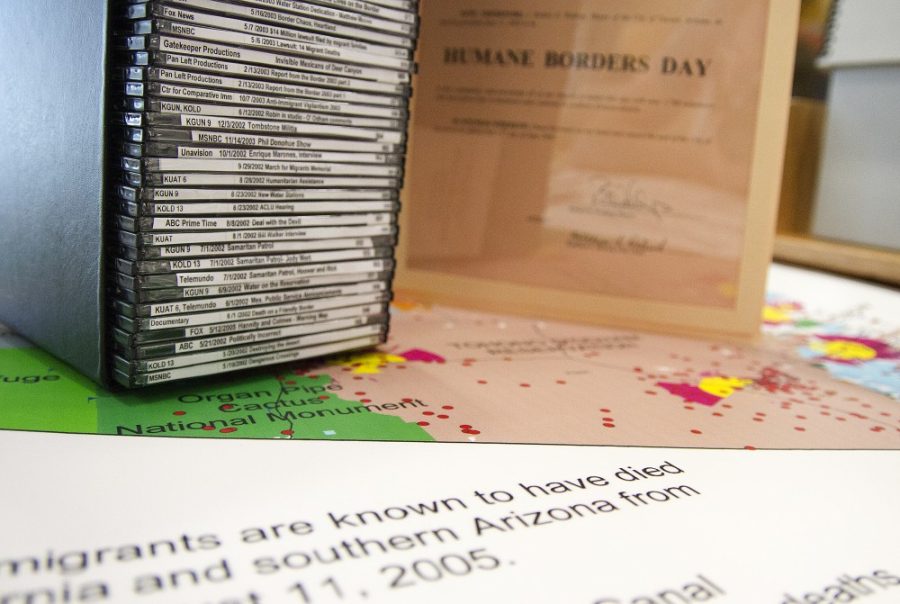The UA Library Special Collections department has obtained archives from Humane Borders, a nonprofit, Tucson-based organization dedicated to minimizing migrant deaths.
Founded in June 2000, Humane Borders has focused primarily on installing and maintaining emergency water stations throughout areas along the U.S.-Mexico border known to be heavily traveled by migrants, in an attempt to “create a safe and death-free border environment,” according to the mission statement at HumaneBorders.org. The organization’s philanthropy has resulted in heavy political criticism from commentators like Bill O’Reilly and Sean Hannity. Humane Borders’ original founder Robin Hoover said the main goal is to help keep people alive.
“Humane Borders is a humanitarian organization that was created to provide humanitarian assistance to the migrants who are risking their lives coming across the Sonora/Arizona border,” Hoover said. “In order to accomplish that, we created and maintained water stations out in the desert.”
Additionally, Hoover, who is no longer involved with Humane Borders on a day-to-day basis, said the organization collected data regarding how many migrants were dying and where. The data was then used to create maps and warning posters to deter migrants from attempting to cross the border.
These maps and posters, along with media and administrative files, Hoover’s own writings and hate mail sent to the organization are all included in the archives now held in Special Collections. Assistant librarian and archivist Chrystal Carpenter said the Humane Borders archives fit in well with other Southwestern history resources, a topic that the UA Library Special Collections specializes in.
“Special Collections is basically the primary research center for the library on campus,” Carpenter said. “We focus on the Southwest and borderlands specifically, as well as other areas that support the university, so we have a lot of primary research materials — correspondence, photographs, rare books — anything that’s unique and one-of-a-kind that’s in the library system is here in Special Collections, and Humane Borders is one of those types of things.”
According to Carpenter, preserving the materials is an important step toward ensuring the information is available to future generations.
“By preserving them (the documents) and keeping them safe for posterity, it allows researchers now and into the future to be able to actively study this material, and be able to promote scholarship and preserve the knowledge,” she added.
Hoover also said having access to the archives will allow people in many fields to continue researching U.S. border relations.
“There will be major histories written about this,” he said. “There already have been books, movies, Ph.D. dissertations, documentaries and thousands of print articles … about this. By putting these in the archives, we’re making them available to historians, students, filmmakers and documentarians to use from now on because this story is far from being over.”
From a university perspective, Carpenter said that having the archives complements the library’s already-notable collection, which includes pieces from the 1800s, documents signed by former President Abraham Lincoln and transcripts of interviews with people who directly knew Adolf Hitler.
“I think that it (having the Humane Borders materials) fosters the goals of the university in building scholarship and research, and building community relations,” Carpenter added. “It definitely fulfills the mission of the university to do so.”








